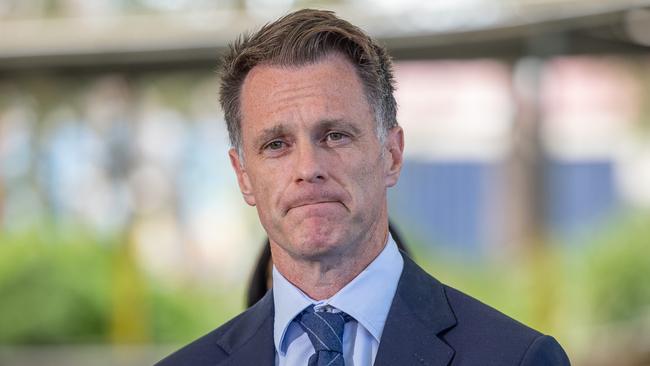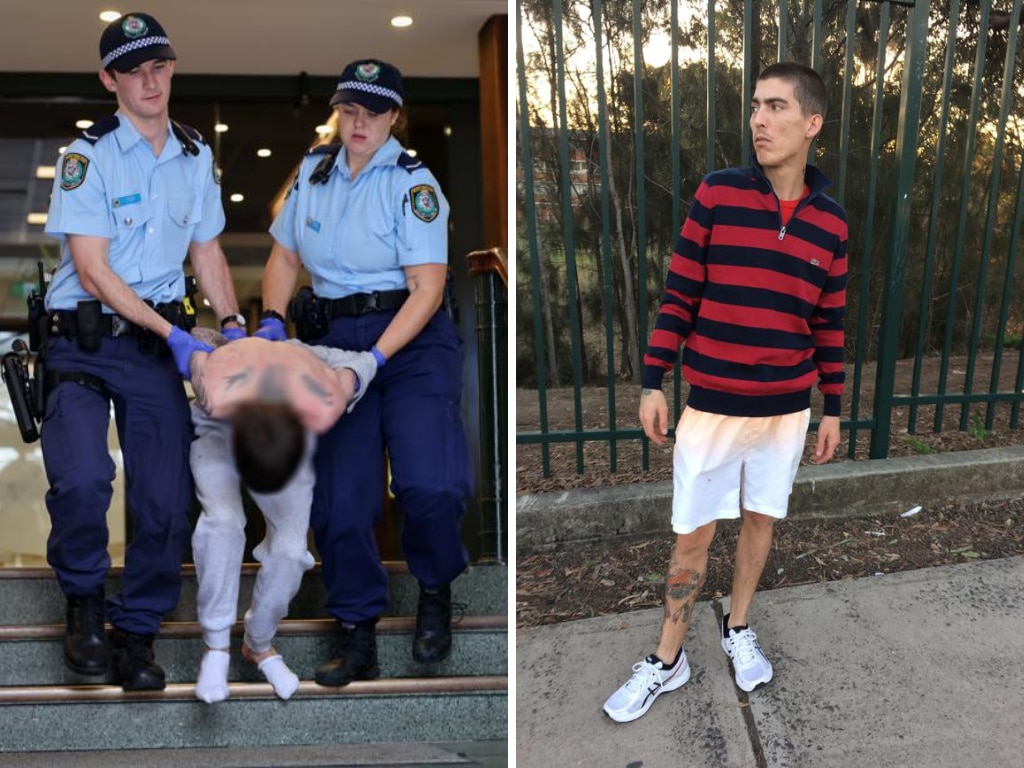NSW Premier Chris Minns’ claims caravan bomb plot was terrorism yet to be stood up by investigators
There is limited evidence that the vast majority of almost 20 of the most serious anti-Semitic incidents are linked or connected, amid expectations the Sydney caravan incident will likely not be labelled an act of terror.

NSW Premier Chris Minns’ description of a caravan containing decades-old explosives and details of Jewish-Australians and a synagogue as a potential “mass-casualty event” and “terrorism” is yet to be stood up by investigators, amid expectations the incident will likely not be labelled an act of terror.
Amid a pre-election firestorm over why Anthony Albanese did not know about the caravan for 10 days and calls from Peter Dutton for an independent inquiry, national security agencies fear a probe could divert resources from frontline operations in a high-threat environment.
With the national terrorism threat level at “probable”, which means a greater than 50 per cent chance of an onshore attack or attack planning in the next 12 months, security sources say an inquiry may ultimately be required to assure the public that federal and state agencies are working as they should.
As state and federal police ramp up resources in response to a soaring number of anti-Semitic attacks and warnings the violence will not plateau in the near term, The Australian understands there is limited evidence that the vast majority of almost 20 of the most serious anti-Semitic incidents are linked or connected.
After The Daily Telegraph on January 29 revealed details of the explosives-laden caravan found at Dural, Mr Minns warned of the potential of a mass-casualty event, described the incident as terrorism and revealed he was briefed by NSW Police on January 20.
The Australian this week confirmed Attorney-General Mark Dreyfus and the Prime Minister, who has refused to reveal when he was briefed by the Australian Federal Police and ASIO due to sensitivities around ongoing investigations, were alerted by federal agencies on January 29.
The AFP, the lead federal security agency on the case working alongside NSW Police, used existing protocols to assess that no high-level ministerial briefings were required due to there being no “imminent public threat or risk”. Central to the decision was the fact no detonators were found, the explosives were decades old, there was no immediate connection to violent extremism, and the caravan appeared to be sitting on a roadside and dumped.
The Joint Counter Terrorism Team, which was called in on January 20, has been actively pursuing multiple lines of investigation alongside ASIO but is yet to formally label the incident as terrorism or a planned terrorist act.
While investigators are pursuing the matter as a top priority given the detection of explosives outside a mining site and or possession of a licensed operator, if a live bomb threat and detonators were located and intelligence emerged about connected plots, briefings would have been immediate and national security committee of cabinet convened.
JCTT agencies often conduct investigations without any inputs from politicians and governments, who are often briefed after warrants are executed and raids conducted. Seizing on delays in Mr Albanese being briefed and the leaking of the caravan investigation, which has sparked divisions between the federal and NSW Labor governments, the Opposition Leader on Thursday called for a formal inquiry.
“I’ve written to the Prime Minister today asking for an independent inquiry in relation to the fact that the Prime Minister of our country wasn’t notified for nine days, 10 days, of what was believed to be the biggest planned terrorist attack in our country’s history. It’s inconceivable that the Prime Minister didn’t know about it,” Mr Dutton said.
A former defence and home affairs minister who is making national security a pillar of his election campaign, Mr Dutton has rebuffed offers for high-level national security briefings related to the caravan matter.
Mr Albanese, who has left the door open to an inquiry, on Thursday continued his strong endorsement of national security agencies and accused Mr Dutton of wanting to sap the AFP and ASIO of resources.
While some security sources are open to a review or probe into existing protocols underpinning when agencies brief intelligence and information to government figures, others believe that current settings are fit-for-purpose.
“Peter Dutton wants resources of the Australian Federal Police and the intelligence agencies to stop doing what they’re doing, chasing down these criminals, arresting them, putting them in the clink. Instead, he wants a political process,” Mr Albanese said. “I support the Australian Federal Police, I support ASIO and our intelligence agencies, including the Australian Signals Directorate and the work that they’re doing.”
Despite some anti-Semitic offenders having links to outlaw motorcycle gangs, organised crime outfits and offshore criminals, most are not considered criminal masterminds, terrorists or foreign intelligence proxies.
Amid speculation of splits between the NSW and federal police, fuelled by historic clashes and tension between the AFP and ASIO, senior sources have doused any divisions across the agencies. Since last April, authorities have investigated 10 terror-related attacks and potential acts of terror.
Asked why he was calling for an inquiry before requesting a briefing from ASIO and the AFP, Mr Dutton said: “I don’t think it’s the place of ASIO or the Australian Federal Police to advise me why the Prime Minister wasn’t advised … that’s not their job.
“I’ve had a number of briefings from the AFP Commissioner and from the director-general of ASIO in relation to the anti-Semitic activity. There’s information that’s publicly available, which is the extent of what you get in some of these briefings anyway. So, I haven’t had a briefing in relation to this event.”
Appearing at a parliamentary inquiry on Thursday, AFP Commissioner Reece Kershaw said it was not appropriate to comment on ongoing terror investigations or related briefings. AFP Deputy Commissioner and national security lead Krissy Barrett said relevant ministers were briefed on a “case-by-case basis”.
After raising the national terrorism threat level from ‘possible’ to ‘probable’ in August, ASIO director-general Mike Burgess said “Australia’s security environment is degrading – it is more volatile and more unpredictable”.
Standing alongside Mr Albanese last year, Mr Burgess said “the upgraded threat level does not directly relate to intelligence about current attack planning or expectations of an attack”.
“You’ve heard me say many times that espionage and foreign interference are our principal security concerns. ASIO’s intelligence suggests that is no longer accurate. While the threats to our way of life remain elevated, we are seeing an increase in extremism,” Mr Burgess said at the time.
“More Australians are being radicalised and radicalised more quickly. More Australians are embracing a more diverse range of extreme ideologies and more Australians are willing to use violence to advance their cause.
“Politically motivated violence now joins espionage and foreign interference as our principal security concerns. Politically-motivated violence encompasses terrorism, but is broader than that. It covers any violent act or any violent threat intended or likely to achieve a political objective. This includes violent protest, riot or an attack on a politician or our democratic institutions.”







To join the conversation, please log in. Don't have an account? Register
Join the conversation, you are commenting as Logout